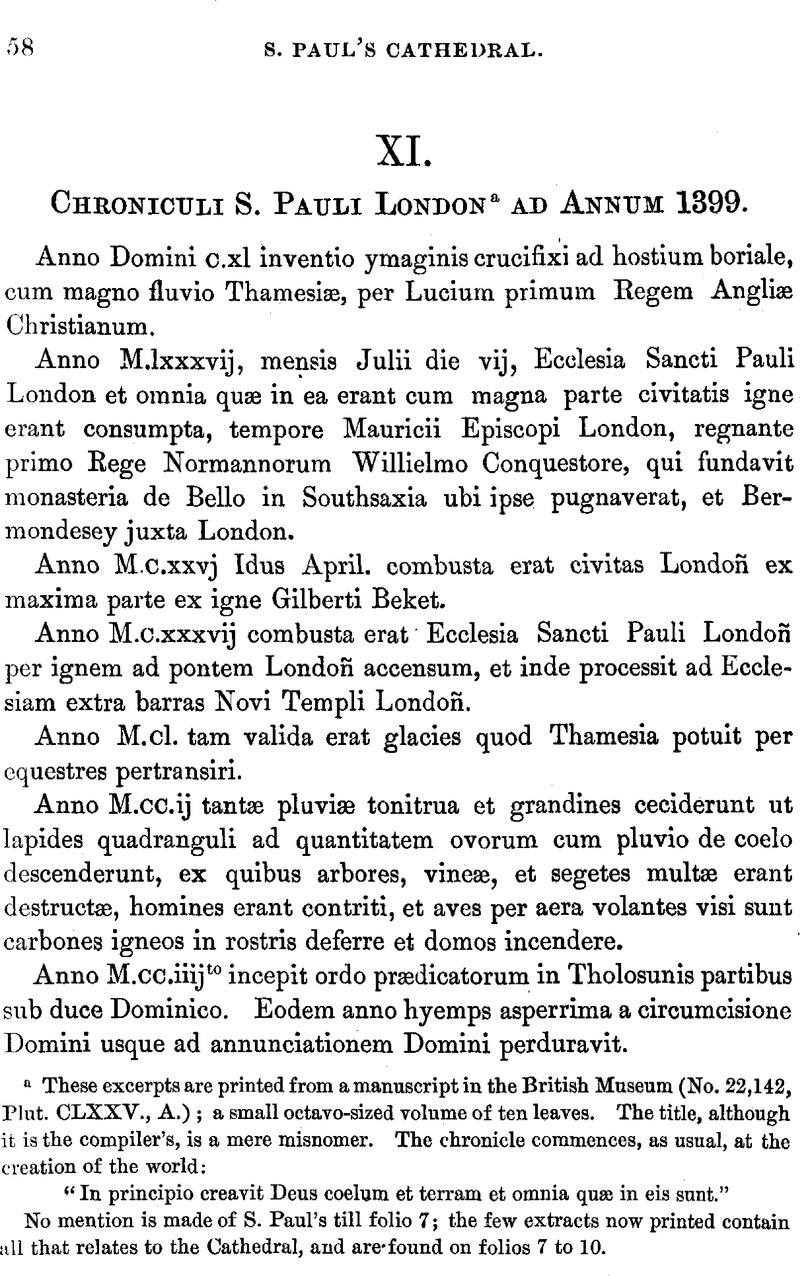No CrossRef data available.
Article contents
XI. Chroniculi S. Pauli Londona ad Annum 1399
Published online by Cambridge University Press: 24 December 2009
Abstract

- Type
- Documents
- Information
- Camden New Series , Volume 26: Documents Illustrating the History of S. Paul's Cathedral , March 1881 , pp. 58 - 60
- Copyright
- Copyright © Royal Historical Society 1881
References
page 59 note a This distich has a very puzzling appearance; I venture to suggest the following solution of the riddle.
In the second line, the words C. Cuculum vixi supply a Chronogram. Arranging the letters in the order of their numerical value, we obtain
MCCCLXVVVVII=1382.
Stow tells us in his Annals that in this year, “The one and twentieth day of May was a great earthquake in England at nine of the clocke, fearing the hearts of many, but in Kent it was most vehement, where it suncke some Churches, and threwe them tlowne to the earth. There followed also another Earthquake the xxiiij of May in the morning, before the sunne rising, but not so terrible as the first.” It will be remembered that in 1387, William Courtney, Archbishop of Canterbury refers (supra, p. 7) to certain terribiles terrœ motus, which had seriously injured Paul's Cross. The Scribe therefore gives us, in these two lines, the date of a memorable earthquake. (See, in Appendix L, a note upon this earthquake.)
In 1382 the Dominical letter was E; S. Dunstan's Day, May 19, has F as its letter, and the next A would fall therefore on May 21, the day named by Stow as that of the great earthquake. Stow, however, says that the earthquake occurred at “nine of the clocke”; the sompnum meridianum must have concluded at an early hour, if Stow is correct. Amongst the Benedictines, says Mr. Mackenzie Walcott, “At 11, the cymbal rang for the brethren to wash their hands and faces at the conduit or lavatory before dinner. On leaving the refectory they went into the choir to say Sexts, and specially the Psalms li and lxvii, and thence to the cemetery, where they stood bareheaded and praying among the graves in which lay the dead never sundered from their love or recollection. Then came, in summer, the meridian, the mid-day sleep; a custom borrowed from the East and southern Europe.” Church Work and life in English Minsters, i. 41.Google Scholar
page 60 note a Sanctissimum is written over an erasure.
page 60 note b See Dean Milman's graphic account of “Spencer, the young and martial Bishop of Norwich,” and his crusade in Flanders. History of Latin Christianity, viii. 197.Google Scholar
page 60 note c Robert de Genève (Clement VII.) proclaimed Pope 21 Sept. 1378.




